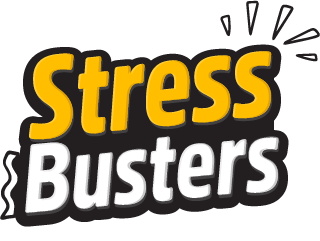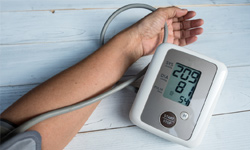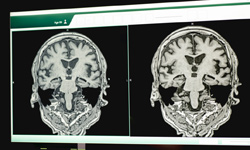
What High Blood Pressure Does to the Brain?


High blood pressure is measured in two numbers. Systolic, i.e., the first number represents the force exerted when the heartbeats. The diastolic or the second number measures the force in between beats.
Contrary to popular belief, high blood pressure has adverse effects on all parts of our body, including the brain, kidney, arteries, heart, eyes, bones, legs, hips, stomach, and genitals.
What Are The High Blood Pressure Effects On The Brain?
The core cause of high blood pressure effects on the brain or any other organ is the blood supply. When there are changes in the natural flow of nourishing blood supply to the brain, it ceases to function, resulting in damages.
Here are the high blood pressure effects on the brain:
- Stroke
Stroke is a condition when blood supply to your brain is stopped or reduced. It can occur because of the clogging of arteries in the brain or the rupture of an artery. When the brain is deprived of oxygen through the blood, it tends to dysfunction, resulting in brain functions such as vision, movement, speech etc. High blood pressure is a significant contributor to the development of stroke, especially in elderly people.
Loss of memory, paralysis, and even death can be the resultants of a severe stroke. According to WHO, around 80 million people in the world are stroke patients.
- Transient Ischemic Attack
Doctors refer to TIA (Transient ischemic attack) as a mini-stroke. In this condition, the blood flow disrupts and restores within minutes or hours, unlike a stroke, where the disease may last a day or a lifetime.
The symptoms are similar to the stroke, wherein you may experience numbness, slurred speech, blurred eyesight, etc. If you contract a TIA, a full-blown stroke may also appear. Hence, one must visit the doctor and strictly follow the guidelines.
- Vascular Dementia
Dementia adversely affects your memory and judgmental capacities. The person may not be able to make minute decisions, hindering his daily activities. High blood pressure affects brain functioning by depriving the nutrients and oxygen. It hampers the cognitive ability of the person, impairing his daily activities.
Dementia starts gradually through forgetfulness. We tend to ignore the symptoms until the patient begins to forget his close family members. However, in most cases, vascular dementia is the after-effect of a severe stroke or transient ischemic attack.
- Alzheimer’s
Alzheimer’s is another kind of dementia. It is a terminal illness and is yet to have a cure. The risk factors are a family history of the disease and lifestyle. Apart from that, the exact reason for Alzheimer’s is still unknown. Though it is not caused directly by high blood pressure on the brain, controlling blood pressure helps block further progression of the disease.
Conclusion
High blood pressure effects on the brain do not stop here. Depression, anxiety, mild cognitive impairment are all the underlying conditions that eventually take the patient to fatalities. Hence, it is advised to consult the doctor and regularly continue the medications.
Note of caution: This article is for information purpose only. Always consult your doctor before altering any diet plans, medications or in case of any other blood pressure-related troubles.

 Stroke is a condition when blood supply to your brain is stopped or reduced. It can occur because of the clogging of arteries in the brain or the rupture of an artery. When the brain is deprived of oxygen through the blood, it tends to dysfunction, resulting in brain functions such as vision, movement, speech etc. High blood pressure is a significant contributor to the development of stroke, especially in elderly people.
Stroke is a condition when blood supply to your brain is stopped or reduced. It can occur because of the clogging of arteries in the brain or the rupture of an artery. When the brain is deprived of oxygen through the blood, it tends to dysfunction, resulting in brain functions such as vision, movement, speech etc. High blood pressure is a significant contributor to the development of stroke, especially in elderly people.
 Doctors refer to TIA (Transient ischemic attack) as a mini-stroke. In this condition, the blood flow disrupts and restores within minutes or hours, unlike a stroke, where the disease may last a day or a lifetime.
Doctors refer to TIA (Transient ischemic attack) as a mini-stroke. In this condition, the blood flow disrupts and restores within minutes or hours, unlike a stroke, where the disease may last a day or a lifetime.
 Dementia adversely affects your memory and judgmental capacities. The person may not be able to make minute decisions, hindering his daily activities. High blood pressure affects brain functioning by depriving the nutrients and oxygen. It hampers the cognitive ability of the person, impairing his daily activities.
Dementia adversely affects your memory and judgmental capacities. The person may not be able to make minute decisions, hindering his daily activities. High blood pressure affects brain functioning by depriving the nutrients and oxygen. It hampers the cognitive ability of the person, impairing his daily activities.
 Alzheimer’s is another kind of dementia. It is a terminal illness and is yet to have a cure. The risk factors are a family history of the disease and lifestyle. Apart from that, the exact reason for Alzheimer’s is still unknown. Though it is not caused directly by high blood pressure on the brain, controlling blood pressure helps block further progression of the disease.
Alzheimer’s is another kind of dementia. It is a terminal illness and is yet to have a cure. The risk factors are a family history of the disease and lifestyle. Apart from that, the exact reason for Alzheimer’s is still unknown. Though it is not caused directly by high blood pressure on the brain, controlling blood pressure helps block further progression of the disease.
Comments (0)
No comments found.Add your comment